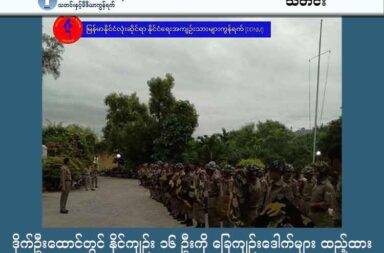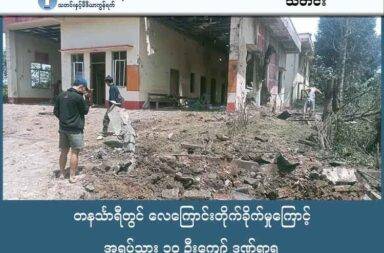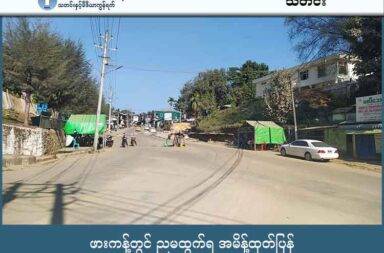Human Rights Abuses Spike in Ta’ang Area, Says TWO
By NETWORK MEDIA GROUP (NMG)
Thursday, October 3, 2019
The number of documented human rights abuses in northern Shan State has increased dramatically over the past three months compared to the first quarter of the year, according to the Ta’ang Women’s Organization (TWO).
The group, which based its data on reported cases of human rights abuses committed by armed groups active in predominantly ethnic Ta’ang areas, said there were 70 abuses reported from July to September, out of a total of 80 cases in the entire first half of the year.
“The abuses include people who were killed by shelling of villages, death and injuries caused by landmines, and forcing civilians to act as porters. According to our records, at least 70 local people suffered human rights abuses during this three-month period,” TWO spokesperson Lway Chee Sangar told NMG.
The group also documented cases of destruction of property, looting, and illegal detention of civilians suspected of belonging to ethnic armed groups or acting as Burma Army informants.
Of the cases that could be attributed to a particular group, the vast majority were committed by the Burma Army.
According to TWO, government forces were responsible for 15 cases, while the Restoration Council of Shan State/Shan State Army and the Ta’ang National Liberation Army committed two each. A people’s militia force was blamed for one case.
“We want the respective organizations to take responsibility for their actions. We want justice for people who have faced human rights abuses. We want all parties to avoid shooting at civilian targets and people,” Lway Chee Sangar told NMG.
The areas with the highest number of reported human rights abuses were in Kutkai, Namhsan, Kyaukme, Hsipaw and Namkham townships in northern Shan State.
TWO said that its list of abuses was not exhaustive, as there were many other cases that were not reported.
In addition to specific incidents affecting individuals, the ongoing clashes in northern Shan State have forced thousands of people to flee their homes.


